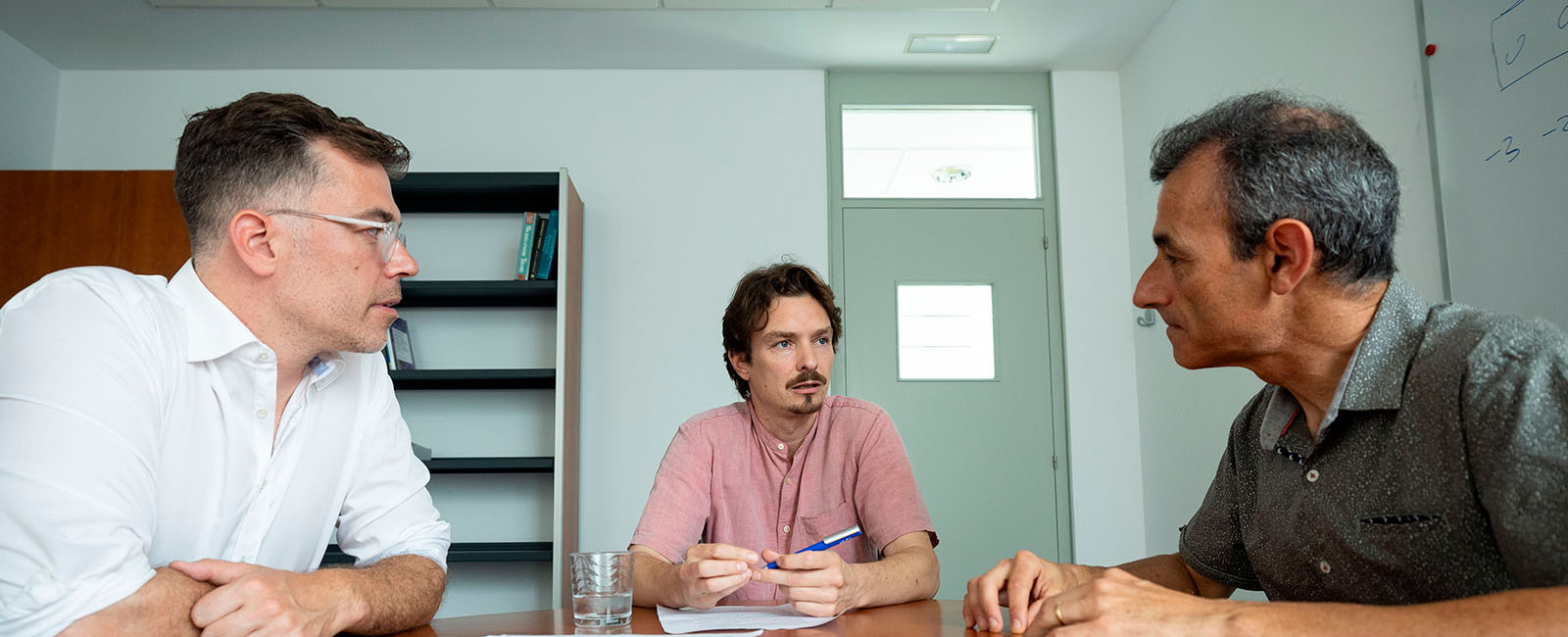
Andre Groeger, Hannes Mueller, Jonathan Hersh, Andrea Matranga and Joan Serrat Gual
SPANISH SOCIETY OF STATISTICS AND OPERATIONS RESEARCH (SEIO)-BBVA FOUNDATION AWARDS
Best Contribution in Statistics and Operations Research Applied to Data Science and Big Data
2023
For their paper “Monitoring war destruction from space using machine learning,” published in Proceedings of the National Academy of Sciences. “The proposed method can help users obtain reliable and updated assessments on destruction in war zones, which plays an important role in humanitarian relief,” said the committee in its citation.
CONTRIBUTION
Satellite images are a vital resource to assess the destruction caused by an armed conflict like Russia’s invasion of Ukraine. However, humanitarian aid organizations, and even the United Nations, still conduct damage assessment by mainly manual means. The sheer number of hours involved in this labor convinced Andre Groeger, Ramón y Cajal researcher in the Center for the Study of Organizatons and Decision Sciences in Economics (CODE) and the Department of Economics and Economic History at the Universitat Autònoma de Barcelona, and Hannes Mueller, a tenured scientist at the Institute for Economic Analysis of the Spanish National Research Council (CSIC) to try to automate the process using artificial intelligence.
Together with Jonathan Hersh, Associate Professor of Economics and Management Science at Chapman University, California, United States; Andrea Matranga, Associate Professor of Business at Chapman University, California, United States; and Joan Serrat Gual, Associate Professor of Computer Science at the Universitat Autònoma de Barcelona, they developed an algorithm that compares satellite images obtained over time to generate data on war destruction of unprecedented accuracy, frequency and coverage. Their results were published in Proceedings of the National Academy of Sciences under the title “Monitoring war destruction from space using machine learning.”
The algorithm was trained with images from the Syrian civil war between 2013 and 2017, so it learned to identify destruction, and the researchers now aim to apply it to the war in Ukraine. However, differences in architecture and landscape between the two countries are a challenge to the algorithm’s effectiveness in this new context. “It is not as easy to use as ChatGPT,” Groeger points out. “We need to collect additional data and retrain the model.”
The team is collaborating with the Russia Will Pay initiative, which aims to document the destruction in order to demand compensation from the aggressor. Satellite images of the conflict in Ukraine, from the initiative itself and the United Nations, will be used to calibrate the algorithm to the country’s specific characteristics.
Groeger, an economist by training, insists that his students understand basic statistical concepts to help them interpret the information they receive. Statistics, he believes, is as a valuable tool, but also “holds dangers for democracy through its power to generate fake news.”
